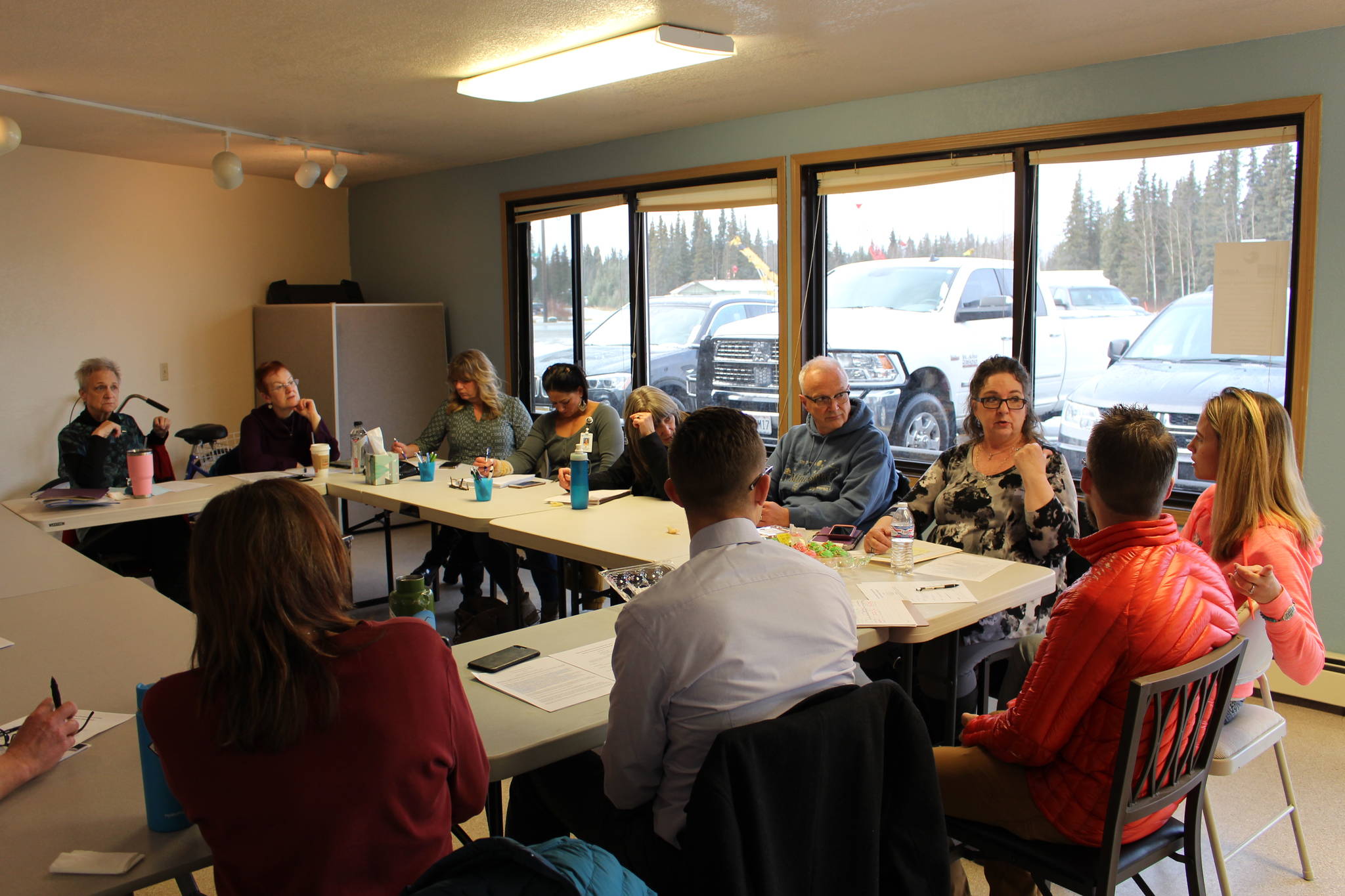With several days of below-freezing temperatures expected in Kenai next week, local efforts to establish an emergency cold-weather shelter on the peninsula are kicking into high gear.
A work group made up of local ministers, agency directors, city council members and concerned citizens has been meeting once a month for the past year with two primary goals: establishing an emergency shelter that can be used by homeless families and individuals when the temperature in Kenai drops below 20 degrees Fahrenheit, and securing a permanent location for transitional housing opportunities. Emergency shelter options on the peninsula are currently limited to the LeeShore Center and Haven House, which provide shelter to women and their children who are victims of domestic violence, and Friendship Mission, which provides shelter for men.
During the shelter work group meeting on Tuesday, members discussed what training would be needed for volunteers and what barriers were left to overcome before they could get the emergency shelter up and running.
Inspired by a model used in Anchorage, the emergency cold-weather shelter will be a network of seven churches that are assigned one day a week to open their doors overnight. On any day that the temperature drops below the established threshold — 20 degrees Fahrenheit — the church assigned to that day is responsible for providing the shelter. The rotation schedule would be made available to the public. Leslie Rohr, executive director for Love, INC, said that five local churches have volunteered to be a part of the program so far.
Karen Martin Tichenor is the pastor at Soldotna United Methodist Church — one of the churches that have signed up for the shelter — and also runs the Soldotna Food Pantry. Tichenor said during the meeting that her church would be willing to take on more than one day a week until the last two slots are filled.
“We are deeply invested in our homeless and want to see this shelter yesterday,” Tichenor said.
With the issue of location nearly solved, the work group then turned to volunteer recruitment and training.
Jennifer Waller, founder of Freedom House, agreed to coordinate the volunteer training, noting that her staff had recently finished a course in mental health first aid.
The work group members agreed that volunteers would need to at least be trained in mental health first aid, workplace safety, standard first aid including CPR and Narcan administration, conflict resolution, abuse and neglect reporting and trauma-informed care. All volunteers would also require background checks.
Kim Haviland, case manager with the Veteran’s Administration HUD/VASH program, said that would add up to about three days of training for each volunteer.
Rohr said that they will be relying on volunteers from local churches in order to fully staff the shelters, which will require two men and two women on any given night.
Greg Meyer, executive director of the Kenai Peninsula Food Bank, said that they have more than enough food to provide meals at the shelters. Due to regulations on food commodities, Meyer said, the meals would need to be cooked at the Food Bank and then delivered to whichever church is being used at the time.
As far as shelter capacity, the group currently has access to 18 sleeping mats and 18 blankets and are hoping to house 10 to 20 people per night. Tichenor noted that if the shelter is to prioritize families with children — which is currently the intent — that could only end up being enough room for a few families a night. Waller said that starting small would still be better than the current situation and would leave the shelter with room to grow as needed.
“As far as the number goes, right now we have zero,” Waller said. “So 10 would be a good start.”
The group will be meeting next at noon on Dec. 3 in the Independent Living Center on Kalifornsky Beach Road.

